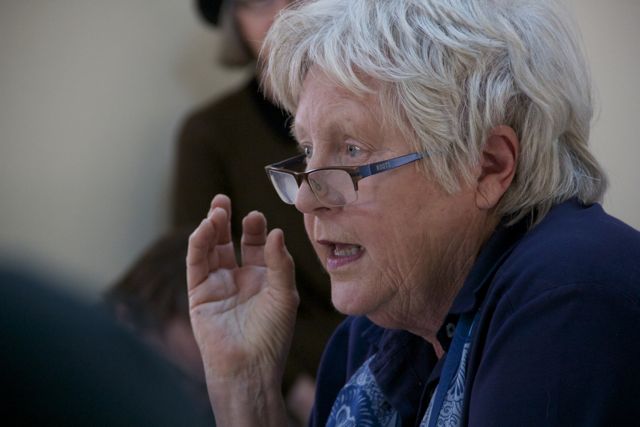
The term ‘green economy’ suggests not only a movement toward reducing environmental risks and ecological scarcities, but improving human well-being and social equality. But is this just another opportunity for exploitation by capitalistic enterprise? Can a green economy really provide a new and sustainable development path for South Africa?
Honorary professor at the University of Witwatersrand, Jacklyn Cock, explored these questions when she presented the lecture recently entitled: “Contested understanding of the ‘green economy’: a wolf in sheep’s clothing or alternative development path?”
She said one of the loudest critiques of this new economic path has been that it puts nature in financial terms, valuing and measuring it according to the services and resources it provides.
The environment has been commoditised as natural capital, said Prof Cock, citing carbon trading as one particularly disastrous example. “Sustainability has been appropriated by neoliberal capitalism,” she added.
South Africa’s own efforts toward a green economy have been addressed by the government and stressed through the concept of ‘just transition’, which President Jacob Zuma revealed as official policy in 2010.
However, “nowhere is the green economy precisely defined,” she said, adding that other official documents and government practice, such as building more coal fired factories, have contradicted this purported aim.
Although green jobs have been at the core of the South African government’s pursuit of this new path, the labour movement has been among the most cynical of the ‘just transition’.
The National Union of Metal Workers (NUMSA) has vocalised worry of this seemingly shallow attempt at change and its glaring lack of public ownership and democratic control.
Prof Cock explained and drew a separation between two prospective routes to a green economy: a social democratic approach and a radical alternative perspective.
The social democratic approach, she explained is associated with ‘just transition’ and it requires active intervention from the state with policies and incentives that support the domestic economy. It also promotes ecological sustainability and social and environmental justice.
Basic needs such as food and employment are addressed through social programmes. The Gauteng provincial government, for example, has actively adopted this approach with local programmes that support urban agriculture. But while it links sustainability and justice, it is still heavily dependent on the overall economic success of sustainability.
The more radical approach supports some of these policies and interventions but advocates for a deeper, more fundamental investigation of the root problem. Also called ‘eco-socialism’ and ‘the solidarity economy’, it takes a more aggressive approach to contradicting the values of neocapitalism that have threatened social equality and environmental wellbeing.
Decentralising energy, challenging the status associated with owning a car, empowering local food cooperatives and simplifying the lifestyle of the middle-class all form a part of this deeper approach, said Prof Cock.
If the green economy doesn’t coincide with an overhaul of values, then no significant change in society or the environment will occur. For these goals to be realised individualism, over-consumption and unchecked economic expansion must be confronted.
Prof Cock believes the more radical approach presents an exciting opportunity: “It could contain the embryo of a very different society,” she said. Ultimately, a new approach to the environment could have far-reaching social consequences.
Photo and story by Hailey Gaunt
